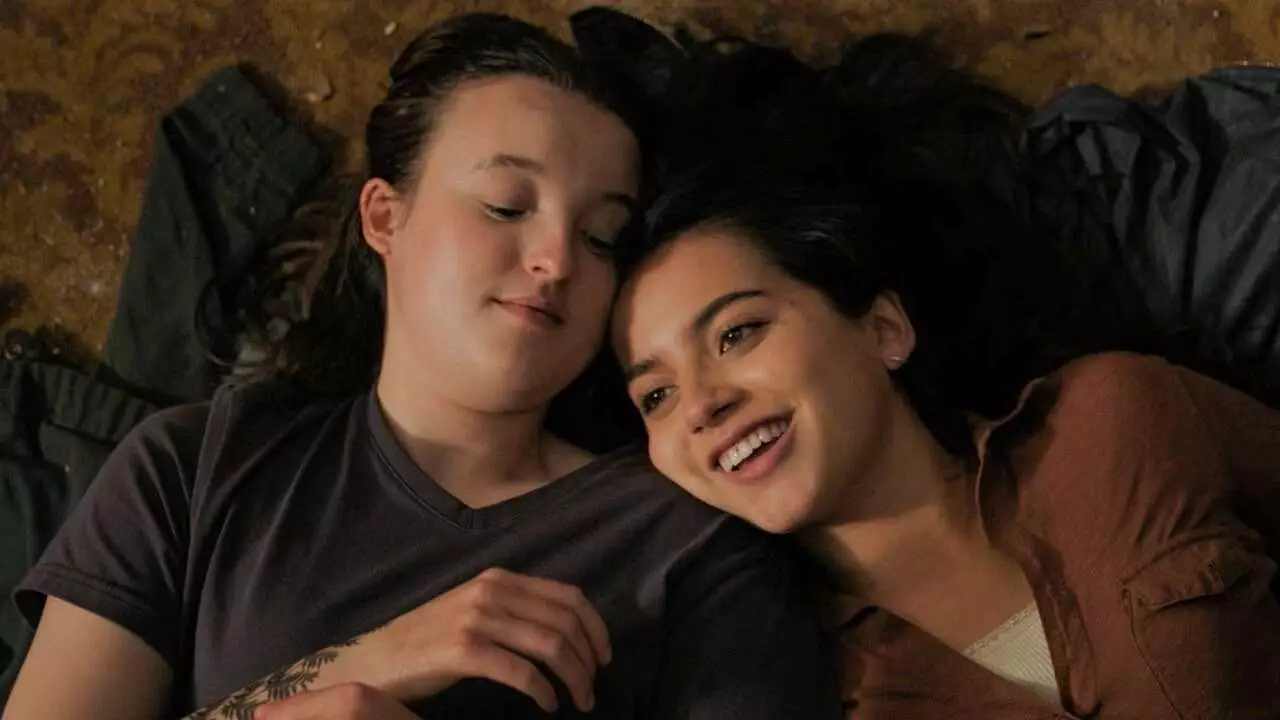HBO’s adaptation of *The Last of Us* has quickly transformed into a cultural touchstone, captivating audiences who may never have interacted with the gaming world. This project has elegantly filled the vacuum left by *Game of Thrones*, establishing itself as an event series that pushes the boundaries of what television can achieve. The show’s foray into a post-apocalyptic world controlled by fungi reflects a unique blend of horror, emotion, and societal critique, making it relevant not just as entertainment but as a narrative that speaks to deeper human experiences.
With the much-anticipated return for Season 2, HBO has not shied away from delivering gripping, shocking moments that push the thematic boundaries of the original material. This iteration has emerged during a time where television is under scrutiny for its perceived commitment to progressive storytelling, an attempt to connect with a diverse audience. As with any significant cultural product, the response has been polarizing, signifying an ongoing tussle between artistic vision and viewer reception.
Critical Acclaim vs. User Backlash
While the show has garnered critical acclaim—earning a “must watch” badge on Metacritic with a respectable score of 81—an alarming trend has emerged in fan reactions, particularly through user reviews. A significant number, 61% of 542 ratings, revealed a stark contrast to critics, decrying the show with dismissive, low scores. It’s troubling to witness such a divergence, especially when a considerable portion of this backlash seems to lack substantial critique. Many commenters find fault with what they term “woke culture,” dismissing character depth and narrative exploration for a desire for more traditional storytelling avenues.
Critics laud the show’s refusal to shy away from representing LGBTQ+ relationships and exploring various facets of humanity within the chaos of survival. Yet, a vocal minority clings to a narrow interpretation of character representation, often failing to appreciate the narrative’s complexity. The weekend escapades of Ellie (Bella Ramsey) and Dina (Isabel Merced) showcase their budding romance, coupled with events that amplify their character arcs. When Ellie performs a haunting rendition of A-ha’s “Take On Me,” it encapsulates not just a moment of joy but a deeper connection amidst a grim world.
The Significance of Character Relationships
In the context of this complex narrative, the emotional content of the series is paramount. The love story between Ellie and Dina carries repercussions that ripple throughout the series; it’s not merely a backdrop but a crucial element that humanizes the characters in an unforgiving landscape. Viewers must confront someone’s reality, not just to be entertained but to empathize with their experiences amidst trials. The poignant revelation of Dina’s pregnancy serves as a narrative device that complicates their relationship further, offering not just a biographical twist but a broader commentary on love and responsibility even in desolation.
The episode’s crescendo, where Ellie and Dina find themselves in a precarious situation involving the WLF and hordes of infected, elevates the stakes and encapsulates the essence of survival. The tension between personal desires and dramatic circumstances portrays each character’s depth, proving that even in a monstrous world, the spark of love survives.
A Reflection on Fandom and Storytelling
It’s essential to consider how fandom often morphs into a double-edged sword. While passionate communities can enhance engagement and dialogue, they can also reveal an exclusionary mentality that limits narrative possibilities. The aggressive “review bombing,” previously seen in the responses to Bill and Frank’s episode in Season 1—which ironically earned Nick Offerman an Emmy—is symptomatic of a culture that struggles to allow for differing perspectives.
As audiences strive to reconcile personal beliefs with content, there’s an opportunity to engage in deeper discussions. Rather than dismissing the series for its progressive tendencies, viewers could reflect on how these narratives challenge traditional portrayals of relationships and witness the profound articulation of human experiences.
*The Last of Us* has indeed become a powerful vehicle for discourse, urging its audience to confront their assumptions and reevaluate their perspectives. It prompts consideration of what narratives can achieve in exploring themes of love, survival, and identity in increasingly complex societies, echoing a timeless truth: it is the stories we share that bind us, even in the most trying of times.


Leave a Reply